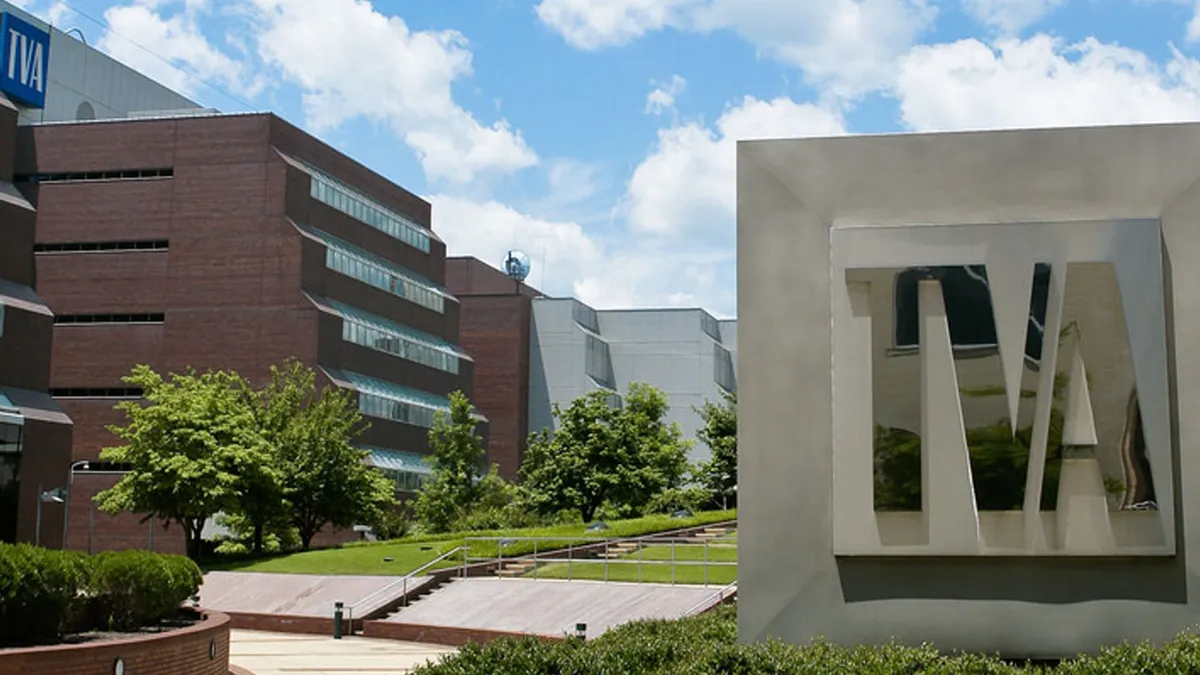Dive Brief:
-
The Federal Energy Regulatory Commission Thursday rejected a request by four utilities that the agency open up the Tennessee Valley Authority's transmission system so they could buy electricity from other power suppliers.
-
Although he supported the decision, FERC Chairman Richard Glick urged Congress to remove the "fence" that prevents utilities in TVA's footprint from buying electricity from other suppliers that may offer cheaper and cleaner power. The lack of competition gives TVA a "carte blanche" to run up costs, he said.
-
Glick also directed FERC's enforcement office to investigate allegations that TVA retaliated against one of the utilities seeking to find alternate power suppliers, a charge the federal power supplier denied.
Dive Insight:
In January, Athens Utilities Board, Gibson Electric Membership Corp., Joe Wheeler Electric Membership Corp. and Volunteer Energy Cooperative asked FERC to order TVA to provide access to its transmission system at prevailing rates so they could transmit electricity across federal power lines (EL21-40). Joe Wheeler withdrew from the petition in August after it reached a new power supply agreement with TVA.
The 3-1 decision by FERC on Thursday allows TVA to maintain its so-called fence, a border set in 1959 by Congress that bars the utility from selling electricity outside its territory. The case centered on an "anti-cherry picking" provision in the Energy Policy Act of 2005 that says FERC "may" give third parties access to the transmission systems of unregulated transmission utilities such as TVA. FERC has used that discretion once, according to the agency.
In the decision, FERC declined to use its authority to open TVA's transmission system to other power suppliers.
In explaining his decision, Glick said he didn't think Congress wanted to give FERC the authority to ignore TVA's fence in the 2005 energy bill.
In a dissent, FERC Commissioner Allison Clements said FERC had the authority to approve the petition and that approving it was in the public interest.
TVA, based in Knoxville, Tenn., supplies power to 153 municipal and cooperative utilities serving most of Tennessee, northern Alabama, northeastern Mississippi, southwestern Kentucky, and portions of northern Georgia, western North Carolina and southwestern Virginia.
"FERC's action is consistent with our view that the public power model created by Congress best serves the public interest," Jim Hopson, TVA spokesman, said in a statement. "We look forward to continuing to work with all of the local power companies to advance our unique, shared mission of service."
Although he voted to dismiss the utilities' petition, Glick blasted TVA's fence as "an absolute anachronism" that prevents the utility's customers from shopping for cheaper or cleaner power.
"In addition to that, it gives TVA carte blanche. They know that they can run up costs if they want to, and no one's there to make sure they don't gold plate everything," Glick said in a press briefing Thursday. "I just think that that is detrimental to the customers, but also detrimental to the operation and the evolution of markets in the Southeast."
"While Congress may have had its reasons for erecting the fence in 1959, there does not appear to be any legitimate rationale for having the fence today," Glick said.
Federal power marketers such as the Bonneville Power Administration face competition and their customers can leave, according to Glick.
"Why isn't TVA being held to the same standard?" Glick asked. "I believe the time has come for Congress to bring down the TVA fence and enable more competitive energy markets to finally develop in the region."
Glick also said agency staff are investigating heavily redacted allegations by the utilities behind the petition that TVA was delaying needed transmission upgrades for Volunteer Energy because of the petition. TVA denied the allegations.















